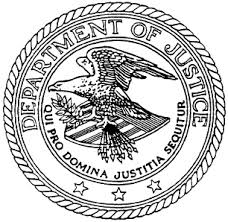LOS ANGELES – Four people were arrested today for raising money for fake movies through boiler room telemarketing operations, federal authorities said.
Victims were promised high financial returns with little risks, authorities said.
The two indictments charge a total of six defendants who allegedly participated in separate fundraising schemes related to bogus film projects.
While one movie script was written, no movies were ever actually produced.
Officials said the indictments allege that the defendants executed the schemes to defraud victims around the nation that resulted in losses of several million dollars.
Also today, the Securities and Exchange Commission filed a civil lawsuit that alleges Braslau, Chortkoff and Rawiit defrauded investors.
In the second case, the operators of another company – C22 in the San Fernando Valley — were named in a 19-count indictment that accuses them of mail fraud, wire fraud, and attempted wire fraud. The two named in an indictment focusing on a company known under several permutations of C22 are:
- Mack Machen, 70, of Sunland, the president of C22, who has agreed to self-surrender.
- Anthony David Millan, 37, of Chula Vista, the CEO of C22, was arrested this morning.
The first indictment focuses on the activities of Mutual Entertainment LLC, which was later renamed Film Shoot. Investors were allegedly bilked in a motion picture called “Marcel” and later renamed “The Smuggler.”
The indictment alleges that the defendants raised money for the film through boiler room telemarketing operations. The telemarketers allegedly made fraudulent pitches to investors after first representing themselves to be independent “surveyors” from a national research firm.
Victims were falsely told that 64 percent of investor money would be used to produce the film, and that investors would be first in line to receive any revenue generated by the movie, according to the indictment. It also states that the defendants falsely claimed to have contracted with well-known actors to appear in “The Smuggler.”
The indictment states that C22 defendants and their telemarketers made cold-calls to potential investors and told the victims that their money would be used to provide short-term “bridge loans.”
Later, the defendants began soliciting money for investment in “Beyond the Mat.” The indictment alleges that the defendants issued promissory notes and promised returns of up to 13 percent per year.
About 80 victims were fraudulently induced to invest in C22, and during the course of the scheme they lost more than $3 million, according to the indictment.

